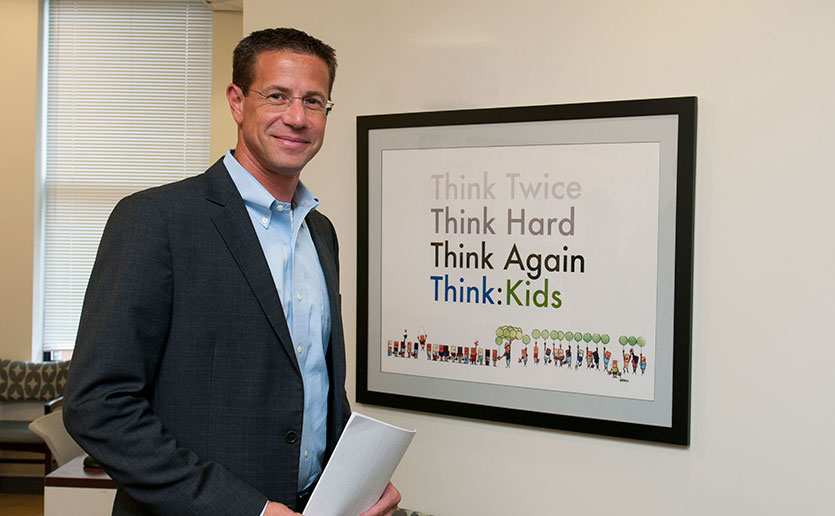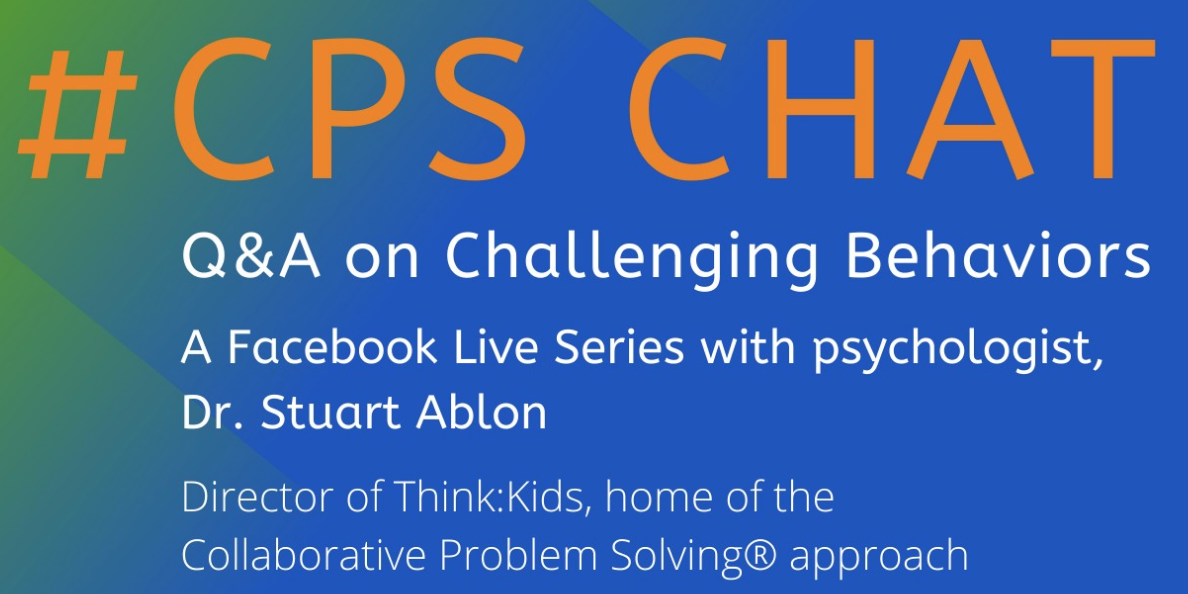By Tre Gabriel
Flawless Fellow
Right now is a challenging time for everyone, but it is an especially tough time for kids who already struggled with challenging behavior. Dr. Stuart Ablon, Director of Think:Kids, hosted Addressing Challenging Behavior During Challenging Times. This was the very first Collaborative Problem Solving (CPS) Chat held on Facebook Live that allowed attendees to bring their questions and concerns directly to Dr. Ablon. Here are some takeaways and strategies that all parents can benefit from:

Remember The Philosophy Behind CPS
The philosophy behind Collaborative Problem Solving is that Kids Do Well If They Can, but he also made a point to say People Do Well If They Can. So that includes teachers, parents, and children all doing the best that they know how to given the circumstances and tools they are provided with. Nobody is behaving difficulty on purpose so have some compassion for colleagues, spouses, children, and yourself. Parents are learning how to work from home and manage their children while children are navigating how to learn from home. There is an enormous demand for everyone to be a bit more compassionate, patient, and flexible especially for our children who are doing the best that they can.
Reset Expectations
This is a time where both parents and teachers need to reset their expectations for children and students. In Collaborative Problem Solving, the first thing you need to establish is if the expectations are clear and realistic for a child. This is a challenging time for all children but what COVID-19 has done is add more stress and dysregulation to make circumstances even more difficult for children who already struggle with normal expectations. When it comes to expectations they have to be clear, realistic and the child must understand what it is you are expecting from them. An easy way to know if you’re doing this is to involve kids while establishing expectations. Allowing them to co-author expectations incentivizes them to buy-in and feel heard rather than feel strong-armed into an agreement.
Managing Sibling Disputes
Siblings tend to get into disagreements even without pre-existing challenging behaviors, it is a part of learning how to work with other people and share. Now under the circumstances of social distancing and kids being cooped up together the learning process may be accelerated. This is an opportunity to use Dr. Ablon’s Collaborative Problem Solving “Group Plan B” strategy. As a parent your job is to sit down with your kids but don’t start to problem solve the fighting – that’s the challenging behavior – instead identify the antecedents and root of the disagreement. Do a lot of active listening and learn to step back. Children are already familiar with parents stepping in and being the judge and the jury. But instead of dictating, try asking them “What do you think you can do about this?” You may be impressed with how much quicker and easier you come to a solution that everyone buys into.
Collaborating With Teachers
Everyone is learning while doing when it comes to academics while social distancing. For teachers and parents it is now time to engage each other, break down the previous boundary, and collaborate. The classroom is now the bedroom or living room so it will be a collective effort when it comes to teaching children, especially those with challenging behaviors who are now without that extra structure and routine that school provided. It is also a great opportunity to understand limited resources (i.e. computer access) that kids may have, or communicate to your child’s teacher if you may be overwhelmed with working from home. Engaging allows you the opportunity to find a solution before it becomes a larger issue.
Dr. Ablon ended this question and answer session reminding everyone to take a humble view of challenging behavior. Sometimes as parents you may get dysregulated and start to view challenging behavior as volitional when truly defiance is a child failing to meet someone’s expectations and showing that in a negative way. But remember they are struggling with the skills not the will, because kids can only do well if they can.







